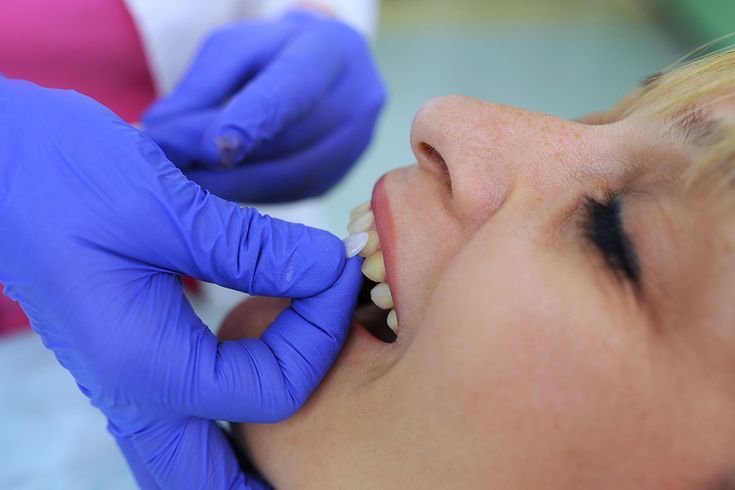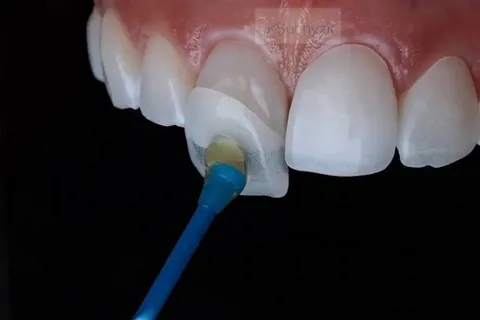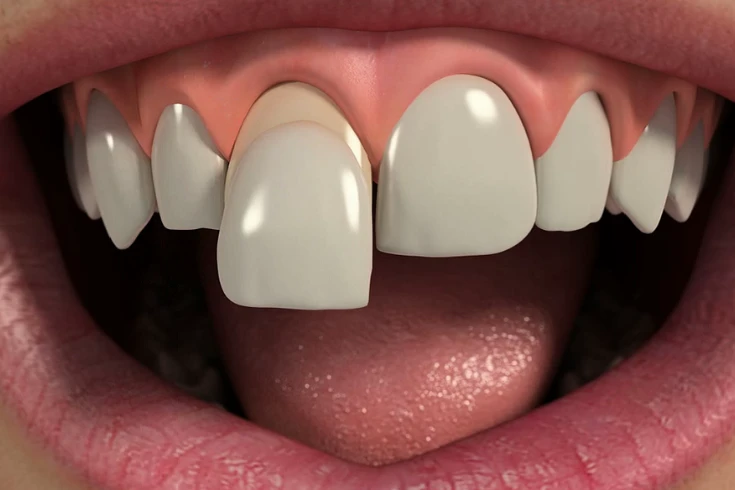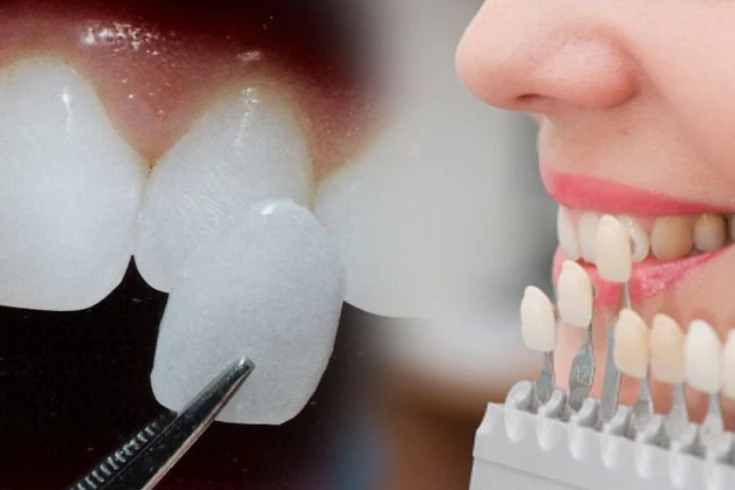Among the common dental care procedures that patients go through include getting a tooth filling. If you are in New Jersey and have the question of how much a filling for your teeth costs, this extended blog will take you through aspects influencing the cost, what type you can get, if they are covered under insurance, and how you might save on those essential dental bills. Let’s find out from this article how much you should know about the cost of a filling in your teeth in New Jersey.
Key Highlights:
- Know about the teeth filling cost
- Types of dental filling cost
- Teeth filling cost with and without insurance
- Factors affecting the cost of teeth filling
What Are Teeth Fillings?
Teeth fillings are designed to restore the functionality, integrity, and morphology of the missing tooth structure that may be due to decay or trauma from the outside. They also serve in the prevention of further decay and restore the normal shape and strength of the tooth. Knowing the cost variables will help you in making an informed decision and in properly planning for your dental treatment.
Why Are Teeth Fillings Necessary?
- Avoids Further Decay: Filling the cavity will prevent further tooth decay and prevent it from reaching deeper layers of the tooth, thus saving the inner pulp from damage.
- Cures Infections: An unsealed cavity may lead to further development of bacteria, causing an abscess or painful toothache that will require root canals or the removal of the said tooth.
- Restores Tooth Function: The filling helps restore the normal function of the damaged tooth. Therefore, it enables you to chew and speak comfortably.
- Tooth Structure Conservation: The dentist fills the cavity to save the overall structure of the tooth. If the dentist does not seal the cavity the tooth may become weaken or break.
- Scales away pain and sensitivity: Dentists perform fillings to eliminate the pain and sensitivity caused by cavities. Thus, one is able to consume hot or cold food items without discomfort.
- Saves money in the future: Rectifying a cavity early with a filling can help avoid further costly procedures.
Average Cost of Teeth Fillings in New Jersey
The cost of tooth fillings in New Jersey can vary widely based on the factors mentioned above. Here is an estimated quote for different types of fillings:
Amalgam Fillings: $50 – $150 per filling
Composite Resin Fillings: $90 – $250 per filling
Gold Fillings: $250 – $4,500 per filling
Ceramic Fillings: $500 – $3,000 per filling
Glass Ionomer Fillings: $150- $400
These prices are for one-surface filling. If the filling is needed for more surfaces or is complicated, the price will increase by that much.
Tooth Filling Cost in Major Cities of New Jersey
The dental filling cost varies within the cities of New Jersey. Below is the average cost of dental fillings shown for the cities:
Newark
- Amalgam Fillings (silver): $100 – $250 per tooth
- Composite Resin Fillings (tooth-colored): $150 – $350 per tooth
- Gold Fillings: $600 – $1,500 per tooth
- Ceramic Fillings: $500 – $1,200 per tooth
- Glass Ionomer Fillings: $150 – $300 per tooth
Jersey City
- Amalgam Fillings (silver): $110 – $260 per tooth
- Composite Resin Fillings (tooth-colored): $160 – $370 per tooth
- Gold Fillings: $650 – $1,600 per tooth
- Ceramic/ Porcelain Fillings: $550 – $1,300 per tooth
- Glass Ionomer Fillings: $160 – $320 per tooth
Paterson
- Amalgam Fillings (silver): $90 – $230 per tooth
- Composite Resin Fillings (tooth-colored): $140 – $340 per tooth
- Gold Fillings: $600 – $1,450 per tooth
- Ceramic Fillings: $500 – $1,150 per tooth
- Glass Ionomer Fillings: $140 – $300 per tooth
Elizabeth
- Amalgam Fillings (silver): $100 – $240 per tooth
- Composite Resin Fillings (tooth-colored): $150 – $360 per tooth
- Gold Fillings: $625 – $1,500 per tooth
- Ceramic Fillings: $525 – $1,250 per tooth
- Glass Ionomer Fillings: $150 – $310 per tooth
Trenton
- Amalgam Fillings (silver): $95 – $220 per tooth
- Composite Resin Fillings (tooth-colored): $145 – $330 per tooth
- Gold Fillings: $600 – $1,400 per tooth
- Ceramic Fillings: $500 – $1,200 per tooth
- Glass Ionomer Fillings: $140 – $290 per tooth
Teeth Filling Cost with Insurance
Dental insurance will significantly reduce the pocket expenses one needs to bear for teeth filling. Here is what you need to know about the insurance coverage for filling:
- Coverage levels: Dental insurance covers a maximum of 80% of filling costs, particularly in the cases of amalgam and composite resin, which are mere basic restorative treatments. Other, more expensive materials, like gold or ceramic, may receive limited coverage.
- Annual maximum limits: Annual maximum coverage limits are usually imposed on dental plans, with maximums commonly ranging from $1,000 to $2,000. Any cost over and above this limit may have to come out of pocket.
- Waiting Periods In some instances, a waiting period may be established before new policyholders are able to utilize the insurance to cover restorative procedures such as fillings.
- In-Network vs. Out-of-Network Dentists: An in-network dentist would typically charge less due to the fact that insurance companies often have an established rate with these dentists. An out-of-network dentist may charge higher.
Teeth Filling Cost without Insurance
If you don’t have dental insurance, you may need to pay the full cost of the filling procedure out-of-pocket. Without insurance, the cost can be a significant burden, especially if multiple teeth need fillings or if you prefer a more expensive filling material like ceramic or gold.
Many dental clinics in New Jersey offer payment plans or financing options to help manage the cost of dental treatments. It is advisable to discuss these options with your dentist.
Factors Affecting the Cost of Teeth Fillings
Material Type
In relation to the composition material, the cost varies because of amalgam (silver), composite resin (tooth-colored), gold, and ceramic. The costs of the composite fillings are higher because they are for aesthetics.
Size and Location of the Cavity
The size and location of the cavity is one of the important factor that affects the cost of a dental filling. If the size of the cavity is large then it will take long time and use more resources to treat. Also if the location of the cavity is in difficult place it will need more time and additional resources which will increase the cost.
Dentist’s Experience and Expertise
The dentist who are experienced and expert at tooth filling charge more then those dentist who are amateur or who has less experience. The experienced dentist will perform the filling with more care and with perfection.
Geographic Location (New Jersey Cost Variations)
The cost of dental filling procedure is depended upon the geographic location too. The dental costs are higher in the city areas then in the rural areas. The dental services that is provided in the city are far more advanced then in the less develop area or rural areas. Therefore, the cost is higher.
Dental Insurance Coverage
The insurance coverage also plays a vital role in affecting the cost. If you have the dental insurance coverage the insurance may cover a portion or the overall cost of the dental filling. Therefore, you will have to pay less or no cost at all for the procedure.
Finding Affordable Teeth Filling Services in New Jersey
Tips for Reducing Costs
Affordable Clinics and Dental Schools in New Jersey
- University Dental Schools: Many dental schools offer reduced-cost care, like fillings, done by students under the supervision of experienced faculty.
- Community Health Clinics: Dental services are provided on a sliding scale based on income so that the low-income patient can access them more affordably.
- Dental Discount Plans: Some clinics have membership-based discount plans where patients who cannot afford regular care receive denting procedures at a negotiated lower price.
Government and Non-Profit Dental Programs
- Medicaid and NJ FamilyCare: Both of these government programs cover dental services for eligible low-income residents of New Jersey, including children and some adults. See if you qualify to be covered.
- NJ Department of Health Programs: The state medical assistance programs offer a variety of programs for low-income people, including dental clinics that may charge reduced fees for basic services.
- Non-Profit Organization: Charities and non-profits are offering dental treatment at no or meager cost to needy children, including New Jersey Dental Association’s Give Kids a Smile Program. Apart from these, organizations like the Dental Lifeline Network offer services for adults with major disabilities, older individuals, or medically fragile persons who cannot pay for dental treatment.
Are There Any Additional Costs to Consider?
Follow-Up Appointments
In some cases, where there is persistent pain or sensitivity, follow-up appointments may be necessary subsequent to the filling procedure.
These are not always included in the overall treatment cost and can be added expenses on their own, particularly in cases where the filling needs to be adjusted.
Costs of X-rays and Diagnostics
The price of the filling may not include the price of X-rays or other diagnostic procedures to determine the extent of dental caries before the filling process. The filling process usually follows dental X-rays.
Other Treatments
Depending on the extent of decay, treatment may be more involved than a simple filling: it may require root canals or crowns. Additional local anesthesia or even sedation may be required to make the procedure comfortable, again increasing the charge.
Frequently Asked Questions about New Jersey Teeth Filling Cost
- Does Insurance Cover Composite Fillings?
Most insurance plans will cover composite fillings but may cover a certain percentage of the overall cost. It usually covers up to 80%.
- How often must I have a filling replaced?
The life of a filling depends on the material used. That Amalgam fillings last longer and last for 10-15 years. Composite fillings may be replaced in 5-10 years.
- Why are composite resin fillings more expensive than amalgam fillings?
Composite resin fillings are tooth-colored and designed for aesthetics, making them more expensive than amalgam, which is silver-colored and less visually appealing.
- Are gold fillings worth the higher cost?
Gold fillings are highly durable and long-lasting, making them a worthwhile investment for some people, despite the higher initial cost. However, they are less common due to the expense.





